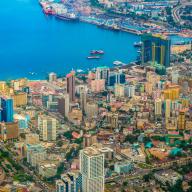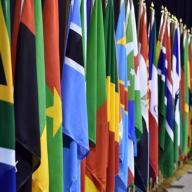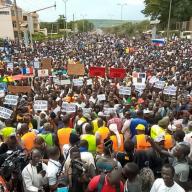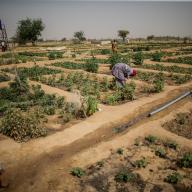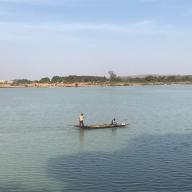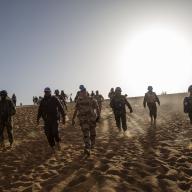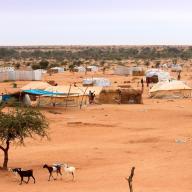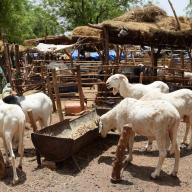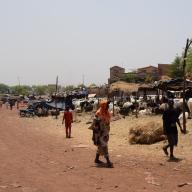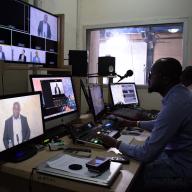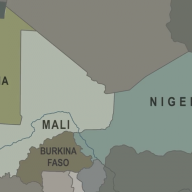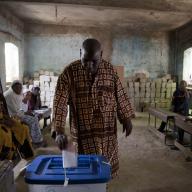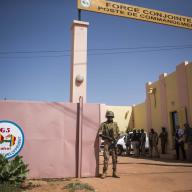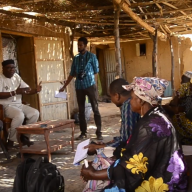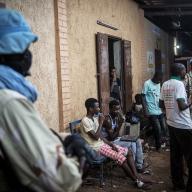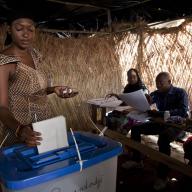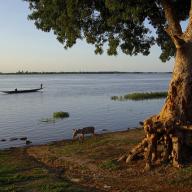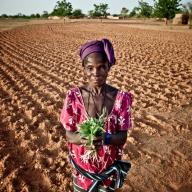Related commentary: Africa
The next two decades will bring a more complex, multipolar and less Western world, one in which regional rather than global connectedness is growing. What does this mean for Africa? This blog from Jakkie Cilliers, the founder and former executive director of the Institute for Security Studies (ISS), explores this question.
A backwards glance at emblematic governance and security events in Africa in 2021 may offer a glimmer of what lies ahead for the continent in 2022. This blog shines a spotlight on some of the key situations currently unfolding there.
On 17–18 August 2020, a military coup—the fourth since the independence of the country—led to the resignation of President Ibrahim Boubacar Keita (IBK), two years after his re-election. Led by high-ranking military officers, the coup concluded the persistent contestation of the regime that culminated in the country’s June 2020 protests.
This Topical Backgrounder is based on the results and activities of the first year of project implementation. It presents the main research findings for each of the indices, namely security, governance and socio-economic development, and the conclusions highlight four key evidence-based recommendations that could help strengthen current stabilization efforts and pave the way to sustainable peace in the two regions.
On Friday 5 June 2020, the opposition to the regime proved its capacity for mass mobilization raising the fundamental question of the capacity of the regime to deal with the multiple challenges and, more generally, the ability of the Malian state to regain its sovereignty, which is fragmented, under international control and constantly disputed by domestic actors.
The so-called ‘Malian crisis’ has now become a regionally multidimensional crisis. Economic, social, political and human dimensions are fed by structural and continuing dissatisfaction of marginalized and vulnerable populations. The fall of Muammar Gaddafi’s regime in Libya (2011) and the subsequent destabilization of Mali (2012) have had protracted consequences throughout the Sahel region which was already affected by structural factors of fragility such as climatic, economic and development challenges.
Since the fall of the Libyan regime in 2011, multiple and multifaceted crises in the Sahel region have greatly destabilized the local states and weakened already vulnerable populations. Located at the crossroads of three crises axes (Libya–Mali axis, Liptako–Gourma region, Lake Chad basin), Niger is particularly affected by regional instability.
From January until November 2019, SIPRI’s Sahel and West Africa Programme and its research partners in the Sahel region have documented the spill-over effects of the 2012 Malian crisis. This blog builds on the findings of research carried out by SIPRI and its partners in Mauritania during September 2019 and uses semi-structured interviews that were conducted in the administrative region of Hodh el Gharbi which is located in the south east of Mauritania bordering Mali.
The Sahel has long been one of Africa’s most fragile regions, but the growing insecurity associated with the 2012 Malian crisis has exacerbated chronic vulnerabilities. Although the Malian crisis has been extensively studied since its outbreak in January 2012, its far-reaching consequences for the region are poorly documented. To examine the regional effect of the crisis, SIPRI’s Sahel and West Africa Programme and its partners in the G5 Sahel countries—Burkina Faso, Chad, Mali, Mauritania and Niger—conducted research during August until November 2019.
The English summary of the Civil Society White Book on Peace and Security in Mali (White Book) is now available.
Despite an expanding cast of security actors responding to conflicts in Mali, insecurity is escalating and spreading across porous borders throughout the Sahel region. The attack on 23 March 2019, the deadliest in the region since 2013, by a Dozo hunting militia killing at least 160 Fulani villagers in central Mali near the border with Burkina Faso, indicates an increasingly volatile security environment with entrenched, intercommunal grievances.
On 29 July 2018, eight million registered Malian voters will be asked to elect their next president. The elections will mark the end of the first presidential term after the military coup in 2012 and will be the sixth presidential election since the democratic transition in 1991. This blog outlines the upcoming elections and provides an overview to SIPRI’s post-election survey to better understand the expectations of Mali’s population.
Deployed in late 2017, G5 Sahel (G5S) is a new joint security force among five Sahel states. This backgrounder outlines the structure of the G5S including its mandate and funding as well as parallel initiatives organized by member states.
Annelies Hickendorff looks at how the newly launched Joint Force Sahel requires-for success-a strong civilian component that focuses on development and governance through a bottom-up strategy promoting economic progress, alternative livelihoods, democratic civilian oversight, transparency and accountability.
By not acknowledging important aspects of Mali’s continuously changing security environment, the UN Security Council has missed the opportunity to use MINUSMA’s mandate renewal to strengthen the DDR process.
After four successive adjournments, Mali held local elections on 20 November 2016. The elections did not occur without incident, however, with several Malian participants in the new SIPRI–CONASCIPAL project reporting violence and intimidation tactics in their local regions.
Civil society mobilized quickly in Mali after the 2012 crisis. SIPRI and its Malian partner CONASCIPAL have launched a new project in Mali to further support civil society on the road to sustainable peace.
The revolution and resistance to the recent political crisis and terror attacks in Burkino Faso should not come as a surprise; they are part of the country's long socio-political history.
After a long process of dialogue and negotiation, a new peace accord has finally been concluded between the Malian Government and two coalitions of armed groups: the Coordination of Azawad Movements (CMA) and the Platform of armed groups (the Platform).
For African countries to best benefit from external activities, they need locally grounded security policies and a firm strategy for incorporating external support.
The development landscape in Africa has drastically changed with the emergence of new trade partners from the Global South, including Brazil, China, India and Turkey.
Achieving sustained peace in Mali depends on 'track III' interventions: initiatives carried out by civil society organizations and other non-state actors to support the emergence of a conducive environment for the settling of conflicts.
Civil society has an important role to play in restoring sustainable peace and security to Mali.
The internatioal community's plan for a military intervention in Mali is arguably only needed because too much priority has been given to security, at the expense of development efforts to the political, economical and social complexity of the situation in northern Mali.
